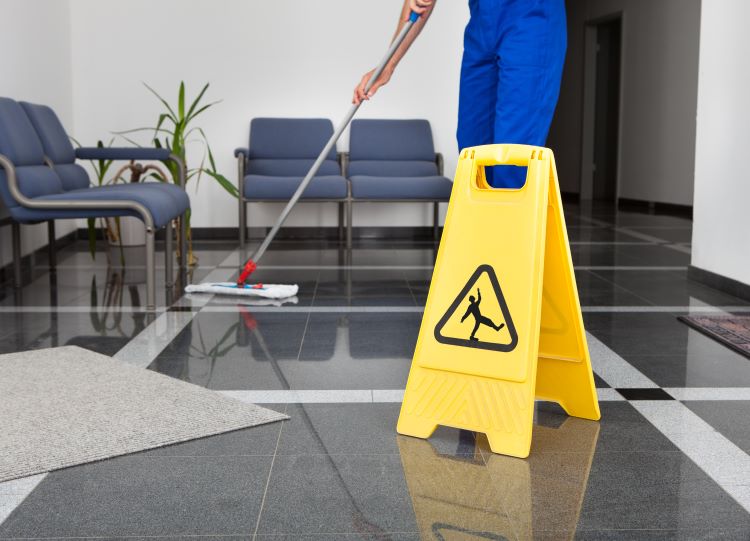Signs your loved one might need home care: what to know
Recognizing when a family member requires assistance at home can be challenging yet crucial for their wellbeing. As our loved ones age or face health challenges, subtle changes in their daily functioning may indicate the need for professional support. While many seniors value their independence, certain warning signs suggest that additional help could significantly improve their quality of life and safety. Understanding these indicators can help families make informed decisions about introducing home care services at the right time, allowing elderly or vulnerable individuals to maintain dignity while receiving necessary assistance.

Struggles with daily routines and personal care
When a loved one begins having difficulty with everyday activities they once managed independently, it may signal the need for home care support. Look for signs such as unwashed dishes piling up, spoiled food in the refrigerator, or neglected household chores. Personal care challenges often manifest through noticeable changes in appearance, including wearing the same clothes repeatedly, body odor, or unkempt hair. These difficulties may appear gradually, with tasks taking longer to complete or requiring increased effort.
Poor medication management is another critical indicator, as missed doses or confusion about prescription schedules can lead to serious health complications. You might notice prescription bottles remaining full when they should be empty or medications being taken incorrectly. Additionally, unexplained weight loss could suggest problems with meal preparation or grocery shopping, while a decline in personal hygiene might indicate physical limitations with bathing or grooming. These challenges often cause frustration and embarrassment, leading some individuals to withdraw socially rather than admit they need assistance.
Noticeable memory lapses or confusion
Memory issues that disrupt daily functioning warrant attention and may indicate a need for supportive care. While occasional forgetfulness is normal with aging, concerning patterns include repeatedly asking the same questions, missing important appointments, or difficulty following familiar recipes. Pay particular attention when your loved one becomes disoriented in familiar settings or struggles to recall recent conversations or events.
Financial management difficulties often accompany memory challenges, manifesting as unpaid bills, unusual purchases, or vulnerability to scams. You might notice mail piling up, confusion about account balances, or difficulty managing household finances that were previously handled with ease. Some individuals may experience increased confusion in the evening hours—a phenomenon known as “sundowning”—indicating potential cognitive changes that require monitoring and support.
While memory lapses don’t necessarily indicate dementia, consistent patterns of confusion, disorientation, or significant short-term memory problems should prompt a medical evaluation. Home care providers can establish daily routines, medication reminders, and cognitive engagement activities that help maintain independence while ensuring safety for those experiencing memory difficulties.
Increased safety risks at home
Safety concerns often represent the most urgent signals that home care assistance may be necessary. Falls represent a significant danger for older adults, with each incident potentially leading to serious injury and hospitalization. Take note of new bruises or injuries your loved one cannot explain, difficulty navigating stairs, or unsteadiness when walking. Environmental factors like cluttered walkways, loose rugs, or poor lighting further compound these risks.
Kitchen safety concerns include forgotten burners left on, scorched pots, or small fires that indicate dangerous lapses in attention. Similarly, bathroom hazards such as difficulty stepping into tubs or managing personal hygiene increase fall risks in these already dangerous areas. Some individuals may begin avoiding certain rooms or activities altogether due to fear of accidents, leading to decreased mobility and independence.
Driving safety represents another critical area of concern. Multiple unexplained dents or scratches on the car, traffic tickets, or getting lost on familiar routes may indicate declining visual-spatial abilities or reaction times. Even if a loved one becomes defensive about these incidents, prioritizing their safety—and that of others on the road—remains essential. Home care services can provide transportation alternatives that maintain independence while eliminating driving risks.
When is the right time to consider home care?
The decision to introduce professional care requires thoughtful consideration of various factors beyond just physical needs. Emotional well-being plays a crucial role—increased isolation, withdrawal from previously enjoyed activities, or expressions of loneliness may indicate that companionship and support could significantly improve quality of life. Similarly, caregiver stress within the family often signals that additional assistance would benefit everyone involved.
Timing matters significantly when introducing home care. Starting with limited assistance before a crisis occurs allows for gradual adjustment and preservation of independence. Many families successfully begin with part-time help for specific tasks like meal preparation or transportation before progressing to more comprehensive support as needed. This approach helps normalize the presence of caregivers while focusing on enhancing rather than replacing independence.
Having open, respectful conversations about home care options before they become urgently necessary allows your loved one to participate meaningfully in the decision-making process. This proactive approach honors their autonomy while ensuring their needs will be met appropriately as circumstances change.
Understanding home care options and costs
Home care services span a wide spectrum, from basic companion care to skilled nursing assistance. Companion care typically provides socialization, light housekeeping, meal preparation, and transportation at lower hourly rates. Personal care services include help with bathing, dressing, toileting, and medication management, while skilled care offers professional medical services like wound care or physical therapy under nurse supervision.
| Care Level | Services Provided | Approximate Cost Range (Hourly) |
|---|---|---|
| Companion Care | Social engagement, light housekeeping, meal prep, errands | £15-22 per hour |
| Personal Care | Bathing, dressing, toileting, medication reminders, mobility assistance | £18-28 per hour |
| Skilled Nursing | Wound care, injections, catheter management, health monitoring | £25-60+ per hour |
Prices, rates, or cost estimates mentioned in this article are based on the latest available information but may change over time. Independent research is advised before making financial decisions.
Most home care agencies require minimum visit durations (typically 2-4 hours), while private caregivers might offer more flexible arrangements. Families should consider both scheduled care needs and provisions for emergency assistance when developing a care plan. Many families combine professional care with family support to create comprehensive coverage while managing costs effectively.
Initiating the home care conversation
Approaching discussions about home care requires sensitivity and patience. Rather than framing the conversation around limitations or deficits, focus on how assistance could enhance independence and quality of life. Using “I” statements to express concerns rather than making accusations helps maintain dignity and respect throughout the process. For example, saying “I worry about you managing the stairs” feels less confrontational than “You can’t handle the stairs anymore.”
Involving trusted individuals such as family physicians, clergy members, or longtime friends can sometimes ease resistance to the idea of accepting help. These respected voices may provide perspective that family members cannot. Additionally, presenting home care as a trial period rather than a permanent arrangement often reduces anxiety about major life changes. This approach allows your loved one to experience the benefits firsthand without feeling they’ve committed to permanent assistance.
Recognizing when a loved one needs home care represents an act of care rather than interference. By paying attention to the signals discussed and approaching the situation with compassion, families can help ensure their loved ones maintain both safety and dignity as their needs evolve.
This article is for informational purposes only and should not be considered medical advice. Please consult a qualified healthcare professional for personalized guidance and treatment.




